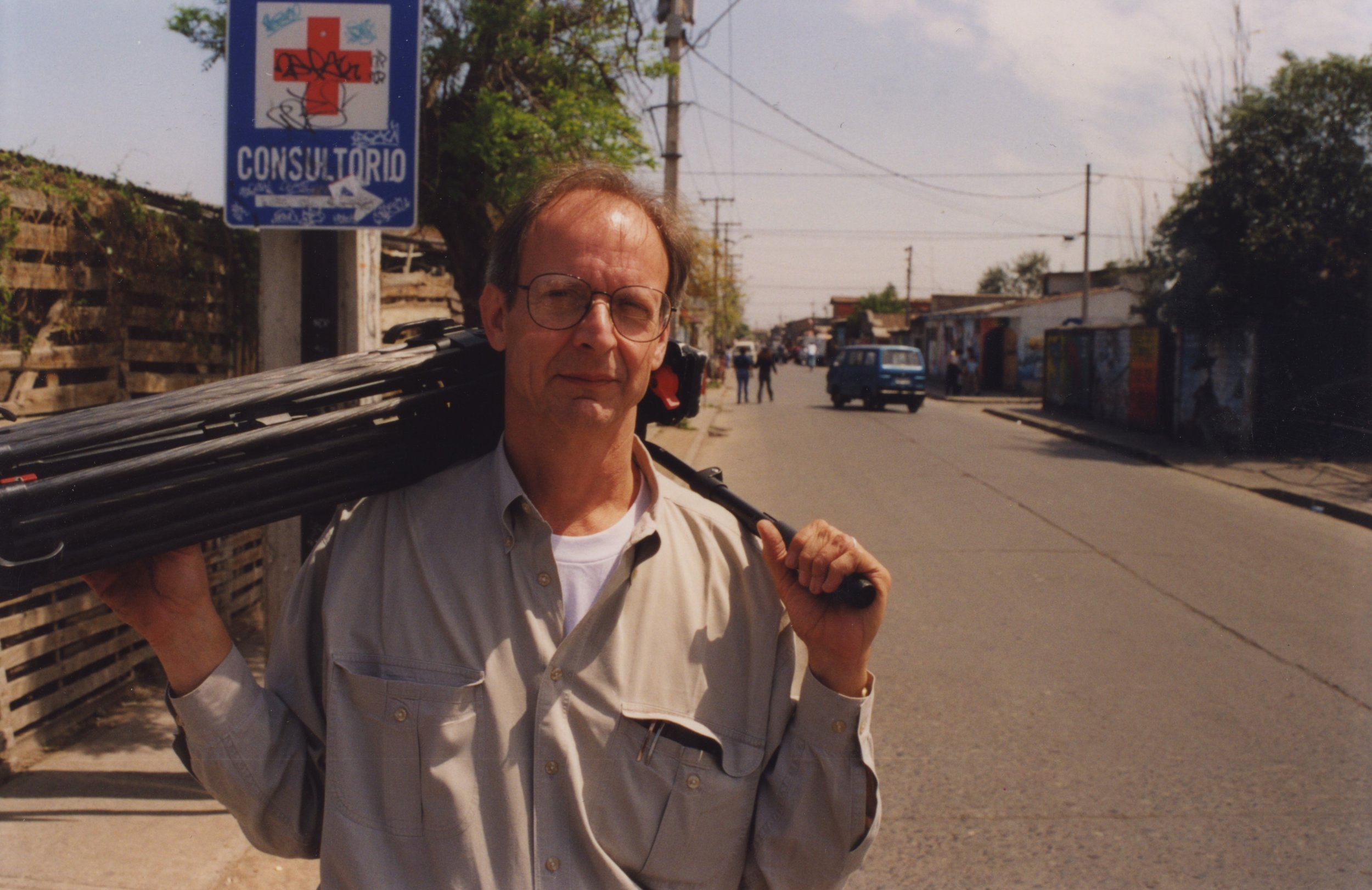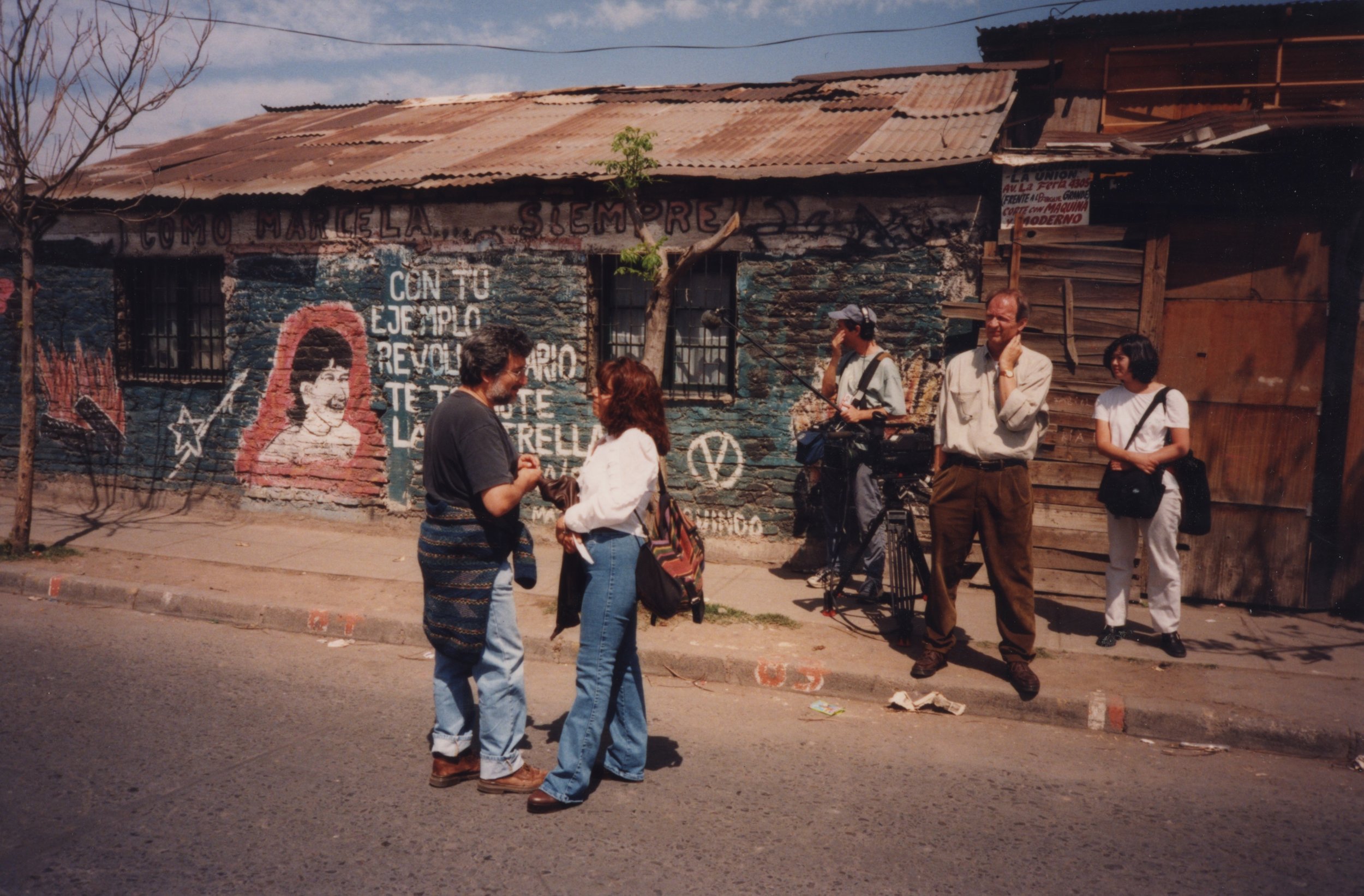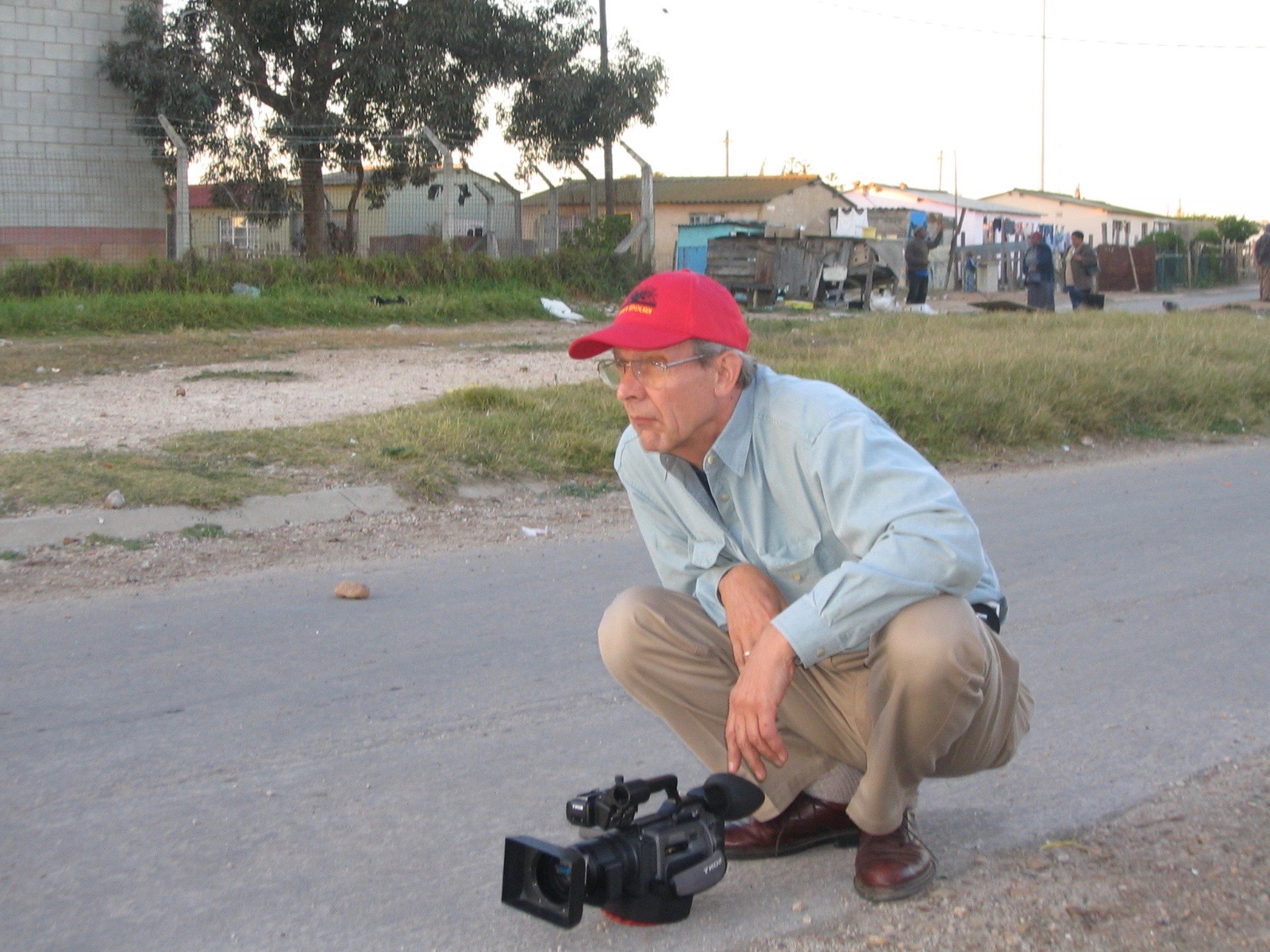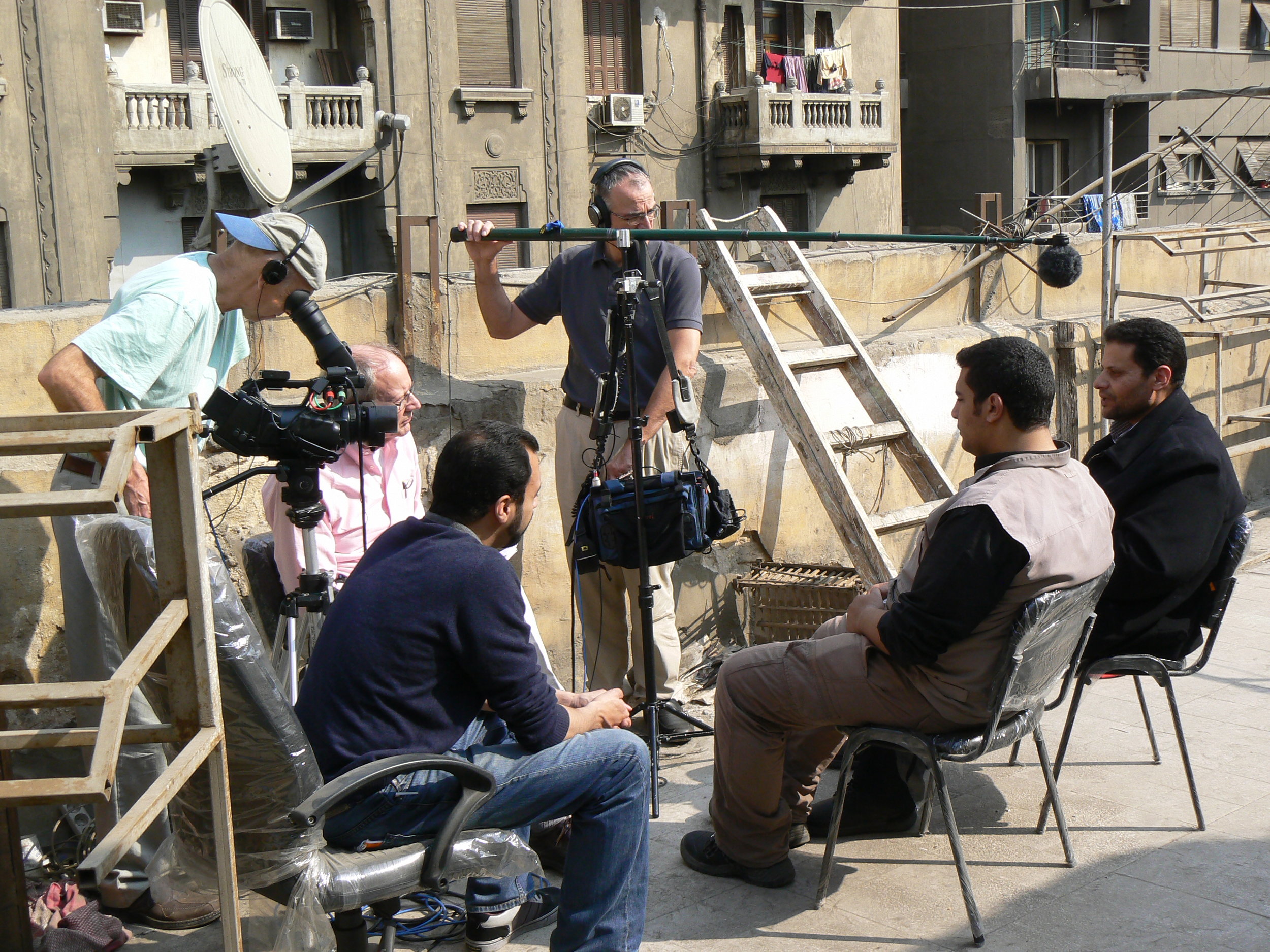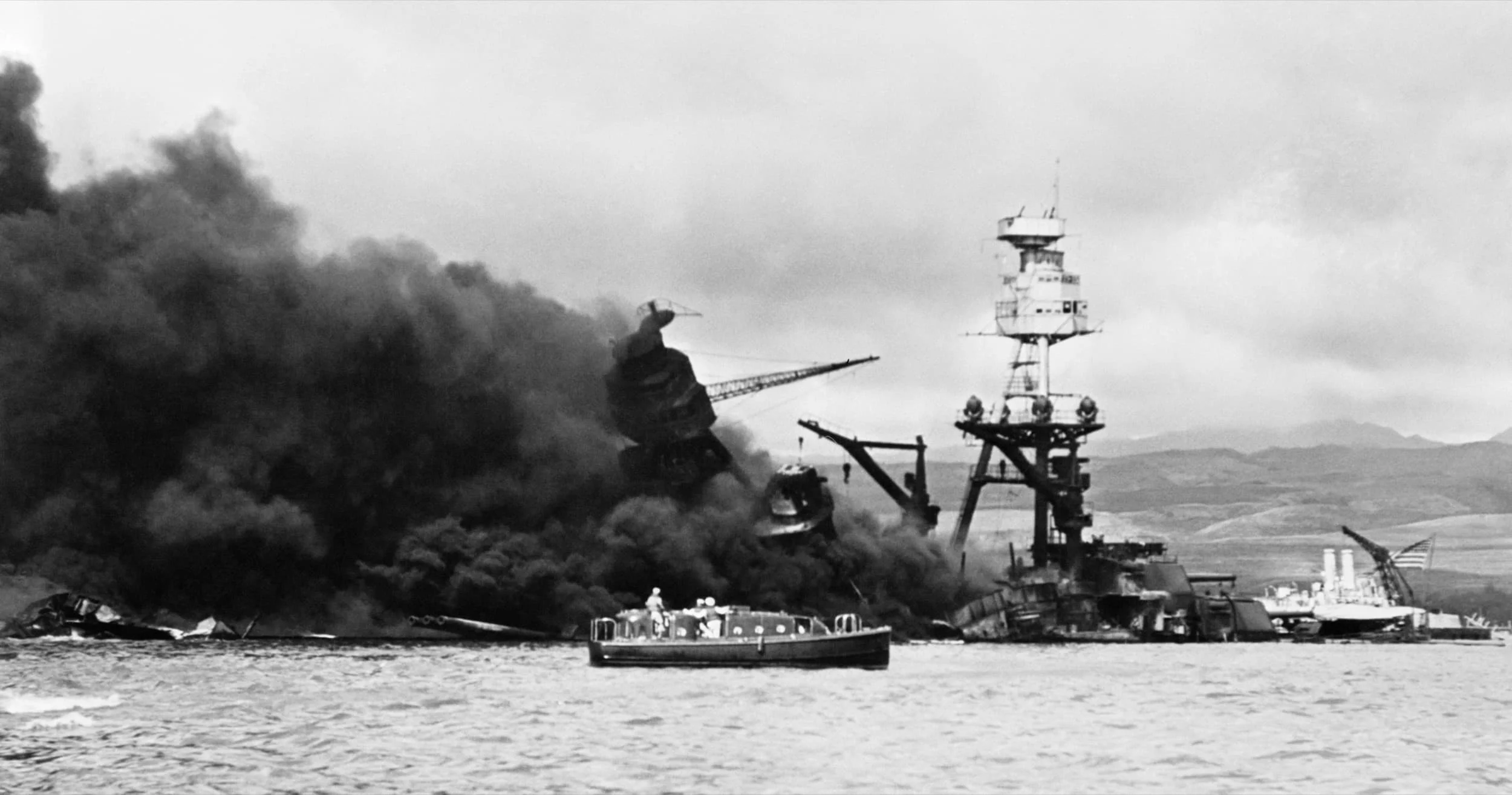About Steve
Steve York on location in Chile, 1998.
The best thing about filmmaking is the people you meet.
Traveling around the world with a camera, meeting people where they live, talking to them about their work or their experiences, really listening – this is how I worked.
Some people became life-long friends. All of them taught me something – about the human spirit, as well as about the subjects I tackled, from religious fundamentalism to history, culture and politics, here in the United States and in Europe, Asia, Africa, and South America.
I’ve made several films about the Middle East, and several about WWII, including the attack on Pearl Harbor, the bombing of Hiroshima and the Allied landing at Normandy.
In 1997, I turned my attention to the drama of civil resistance movements around the world. Years in the making, the 3-hour series, A Force More Powerful (PBS, Emmy nomination) premiered in 2000 and told the stories of six successful 20th century nonviolent conflicts.
Next came Bringing Down A Dictator (PBS, George Foster Peabody award) about the nonviolent defeat of Serbian strongman Slobodan Milosevic. We asked Martin Sheen to narrate; later he asked me to direct several public service spots he was doing. His commitment to social justice is deep and true. We completed the civil resistance trilogy in 2007 with the feature-length film, Orange Revolution, about the dramatic events surrounding the presidential election in Ukraine in 2004.
Peter Pearce (camera), Steve York & Paul Rusnak (sound) on location for Egypt:Revolution Interrupted?
For my last film, Egypt: Revolution Interrupted?, I drew on my decades of experience in the region to show how Egyptian activists steadily mobilized and finally defeated their autocratic president of 30 years, but failed to achieve their democratic and economic goals.
Along the way, my team and I traveled to South Africa, Peru, and East Timor to create Confronting the Truth, for the U.S. Institute of Peace about the mission and impact of truth and reconciliation commissions.
By taking testimony from victims & perpetrators, and conducting detailed investigations, truth commissions create a historical record of abuses and then recommend reforms to address the pain of the past, to safeguard human rights and due process, and to ensure that the horror will not be repeated.
On location in Peru for Confronting the Truth, 2002.
One of the first films I directed was Vietnam Memorial (PBS, Emmy nomination), a record of the five emotional days of healing surrounding the 1982 dedication of the Wall. This remains my favorite work.
In 1987 I gained unprecedented access to the inner workings of the U.S. Supreme Court to film the PBS series, This Honorable Court. The relationships made were enduring; I met Miriam on this project, and nearly 10 years later, in 1996, the Court asked us to make a short film for their visitor’s center where it screened for a decade.
In the 1990’s, I produced two anniversary specials about World War II for ABC News Specials, Pearl Harbor: Two Hours That Changed the World, with David Brinkley, (George Foster Peabody Award), and Turning Point at Normandy: The Soldiers' Story, with Peter Jennings. I also dove into advertising and its influence on American society for Selling the Dream (PBS), and gun culture in Gunpower (Discovery Channel).


